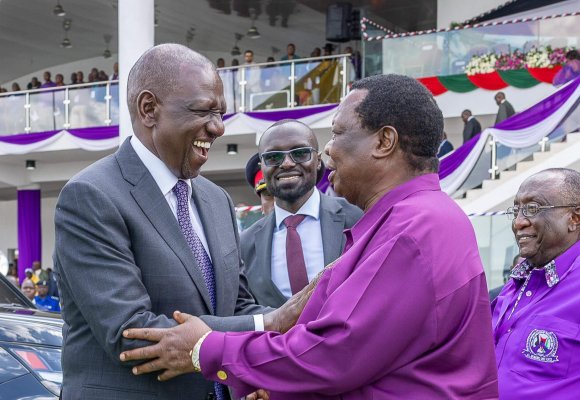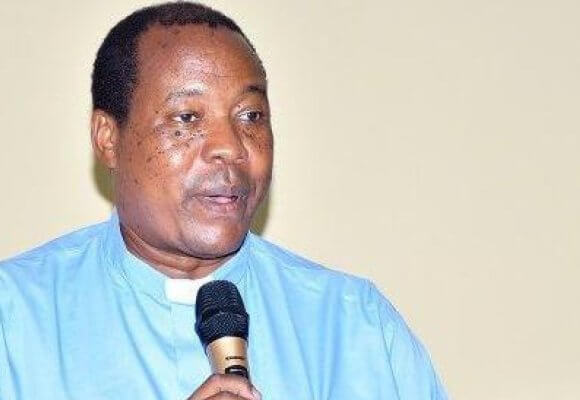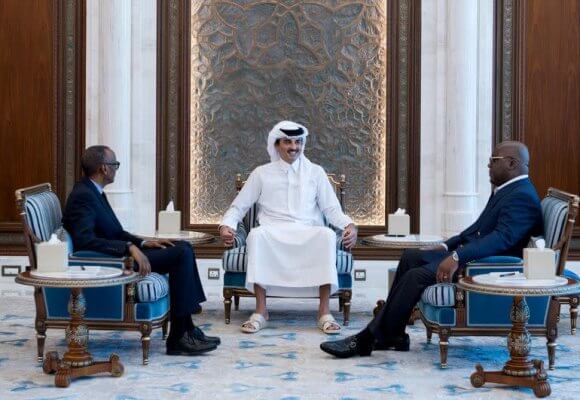|
LISTEN TO THIS THE AFRICANA VOICE ARTICLE NOW
Getting your Trinity Audio player ready...
|
Chad and Senegal strongly condemned comments made by French President Emmanuel Macron on Monday, accusing him of showing contempt for African nations. Macron’s remarks, delivered during an ambassadors’ conference in Paris, suggested that Sahel states owed their sovereignty to France’s military interventions against jihadist insurgencies.
Macron claimed that France’s deployment of troops in the Sahel region since 2013 had prevented countries like Mali, Niger, and Burkina Faso from falling under militant control. He expressed frustration, stating that African leaders had “forgotten” to thank France for its role. “None of them would be a sovereign country today if the French army hadn’t deployed in the region,” he said, adding that public opinion in these nations had influenced their leaders’ reluctance to acknowledge France’s contributions.
Chad’s Foreign Minister, Abderaman Koulamallah, responded forcefully, describing Macron’s remarks as reflective of a “contemptuous attitude towards Africa and Africans.” Speaking on national television, Koulamallah emphasized the need for French leaders to respect the sacrifices of African nations.
“French leaders must learn to respect the African people and recognize the value of their sacrifices,” he said. He also highlighted the historical role of African soldiers in defending France during the World Wars, pointing out that without their contributions, France itself might not have achieved sovereignty.
Similarly, Senegalese Prime Minister Ousmane Sonko criticized Macron’s assertions, stating that France had no legitimacy to claim responsibility for Africa’s security or sovereignty. Sonko accused France of destabilizing the region through its actions in countries like Libya, which he described as having “disastrous consequences” for the entire Sahel.
“France has neither the capacity nor the legitimacy to ensure Africa’s security and sovereignty,” Sonko said in a statement. He also refuted Macron’s claims about Senegal’s decision to close French military bases, insisting it was a move born out of Senegal’s “sole will as a free, independent, and sovereign country.”
Macron’s remarks come at a time when France’s influence in West Africa has been waning. Over the past year, several countries, including Chad, Senegal, and Ivory Coast, have terminated security agreements with France. Meanwhile, Mali, Burkina Faso, and Niger expelled French troops following military coups, turning instead to alternative partnerships, including with Russia.
In November, Chad officially ended its defense agreement with France, with Foreign Minister Koulamallah stating that France’s contributions had been limited to pursuing its “own strategic interests.” He underscored that Chad’s decision marked an assertion of its full sovereignty and a shift towards prioritizing national interests in its strategic partnerships.
The strained relations between France and its former colonies are rooted in historical grievances. Both Koulamallah and Sonko highlighted the significant, often overlooked role of African soldiers in defending France during the World Wars. “Had African soldiers, sometimes forcibly mobilized, mistreated, and ultimately betrayed, not been deployed during the Second World War to defend France, it would, perhaps, still be German today,” Sonko remarked.
France’s military presence in the Sahel began in 2013 with Operation Serval, which initially aimed to counter an Islamist insurgency in Mali. The mission was later expanded to other Sahel countries under Operation Barkhane. However, accusations of neo-colonialism, exploitative economic relationships, and a failure to address local security challenges have fueled growing resentment among African nations.
Macron defended France’s withdrawal from the region, asserting that it was part of a broader reorganization of French strategic interests. However, his remarks have only deepened the rift, with African leaders viewing them as a dismissal of their agency and sacrifices in the pursuit of sovereignty.











LEAVE A COMMENT
You must be logged in to post a comment.